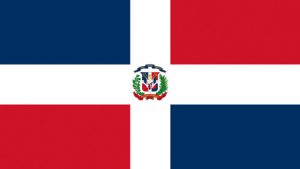
Dominican Republic
Policy on Immigration and Refugees
The Dominican Republic is located on the island of Hispaniola, which it shares with the nation of Haiti to its west. By the end of the fifteenth century, Jews are escaping to the island from persecution by the Inquisition; but they are soon expelled under Spanish decree. The Spanish crown colony of Santo Domingo is conquered by Haiti in 1805 and declares its independence in 1844.
Although Dominican society harbors resentment against Haitians, the young Dominican Republic scarcely has antisemitic prejudice. In fact, following Russian pogroms in the 1880s, President Gregorio Luperón welcomes Jewish settlers.
The political conditions in the country remain unstable into the 20th century. The United States occupies the Dominican Republic from 1916 to 1924; in 1930, General Rafael Leonidas Trujillo Molina seizes power with the help of American troops. His regime is marked by political assassinations, a rampant cult of personality, and a thinly veiled system of nepotism and patronage. The Trujillo administration (“El Trujillerato”) lasts until his assassination in 1961 and is one of the bloodiest periods of Latin American history. Even under Trujillo, the country’s overall pro-Jewish tendencies are maintained.
At the Évian Conference, the country volunteers to take in 10,000 Austrian and German victims of persecution. There are clear motives and difficult strings attached to this generous gesture. The potential settlers will have to work in agriculture, finance their own passage and settlement, and be open to marrying local Dominicans. Trujillo the dictator wants to use the opportunity to import well-educated, light-skinned young Europeans into the country who will populate northern regions of the Dominican Republic and “whiten” the country. In addition, he wants to exploit this show of generosity so as to distract from the international outcry over the October 1937 murder of as many as 20,000 Haitians by the Dominican Army under Trujillo’s orders.
The Caribbean country’s offer to take in refugees, later extended to as many as 100,000 Jewish refugees, is initially met with reticence. The quota is never reached. In total, more than 3,000 Jews travel to the Dominican Republic. Many of the immigrants settle in newly founded agricultural colonies in the 1940s, notably Sosúa. Most of them continue onward to the United States.
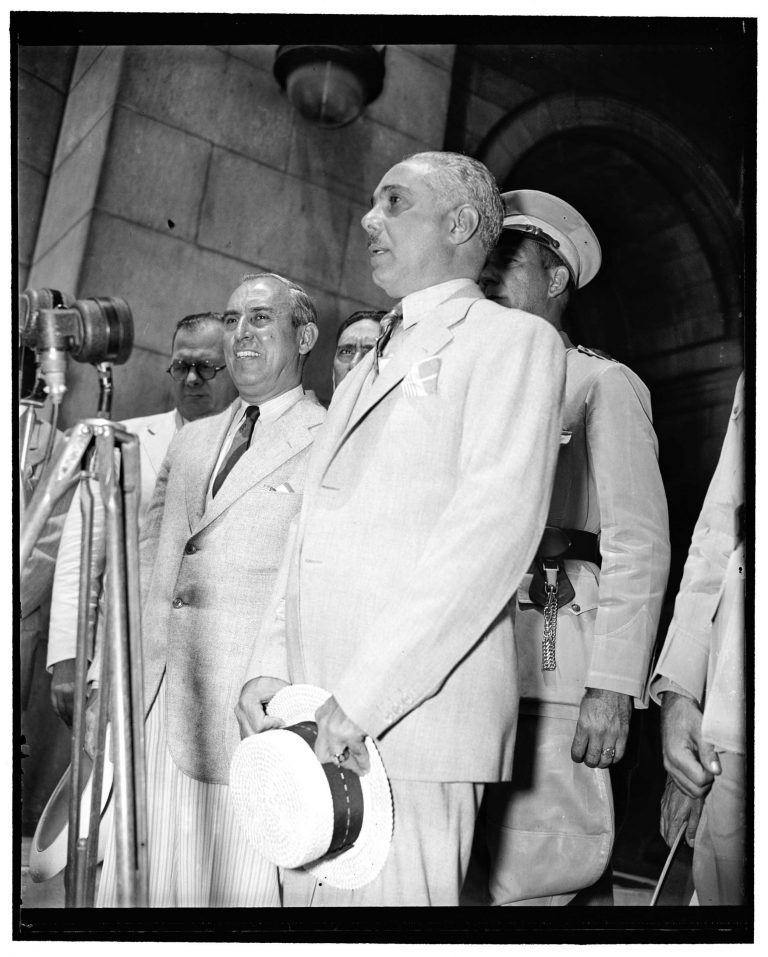
Rafael Trujillo on July 6, 1939 during a visit to Washington
Trujillo flirts with Nazism and admires the dictators Mussolini and Franco. However, an attempt at closer cooperation with the German Reich fails due to the Dominican Republic’s close ties with the United States, upon which the republic is also politically and economically dependent.
Harris & Ewing / Library of Congress, Prints & Photographs Division, LC-DIG-hec-26942
Rafael Trujillo on July 6, 1939 during a visit to Washington
Trujillo flirts with Nazism and admires the dictators Mussolini and Franco. However, an attempt at closer cooperation with the German Reich fails due to the Dominican Republic’s close ties with the United States, upon which the republic is also politically and economically dependent.
Harris & Ewing / Library of Congress, Prints & Photographs Division, LC-DIG-hec-26942
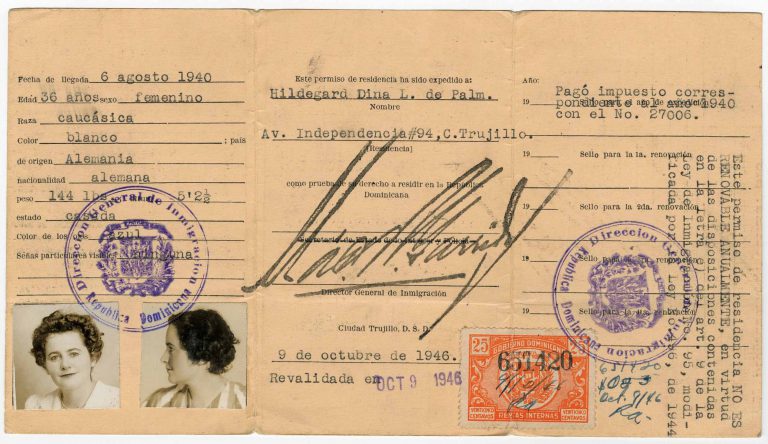
Dominican Republic residence permit (1940–1946) for Hildegard Palm, née Löwenstein
Hilde Palm, whose family is Jewish, flees to the Dominican Republic in 1940. Later the lyricist publishes under her artist name – Hilde Domin – which is derived from the name of the country that has taken her in. On the left side of her permit, “race” and “skin color” are noted. Domin later calls the dictator Trujillo a “frightening lifesaver.”
Deutsches Literaturarchiv, Marbach
Dominican Republic residence permit (1940–1946) for Hildegard Palm, née Löwenstein
Hilde Palm, whose family is Jewish, flees to the Dominican Republic in 1940. Later the lyricist publishes under her artist name – Hilde Domin – which is derived from the name of the country that has taken her in. On the left side of her permit, “race” and “skin color” are noted. Domin later calls the dictator Trujillo a “frightening lifesaver.”
Deutsches Literaturarchiv, Marbach
Delegation
Virgilio Trujillo Molina
* 24 July 1887 San Cristobál † July 1967 Madrid
Virgilio Trujillo Molina is of Spanish dissent and grows up in a lower middle-class household in San Cristobál. He is the older brother of the Dominican dictator Rafael Trujillo, who in 1930 takes power and rules the country with an iron fist, suppressing all opposition.
Virgilio Trujillo becomes a member of parliament and a secretary of state in various ministries in his brother’s government. Yet his political ambitions lead to a tense relationship between the two of them.
Virgilio is sent abroad, becomes an ambassador to the United Kingdom in 1934, and then holds diplomatic posts in France, Switzerland, Belgium, and the Netherlands in the years that follow. Later, he becomes the Dominican ambassador in Madrid. After his brother’s assassination in 1961, he does not return to his home country. His relationship to Rafael is strained to the end. Nevertheless, Virgilio is part of Rafael’s apparatus of power and repression.
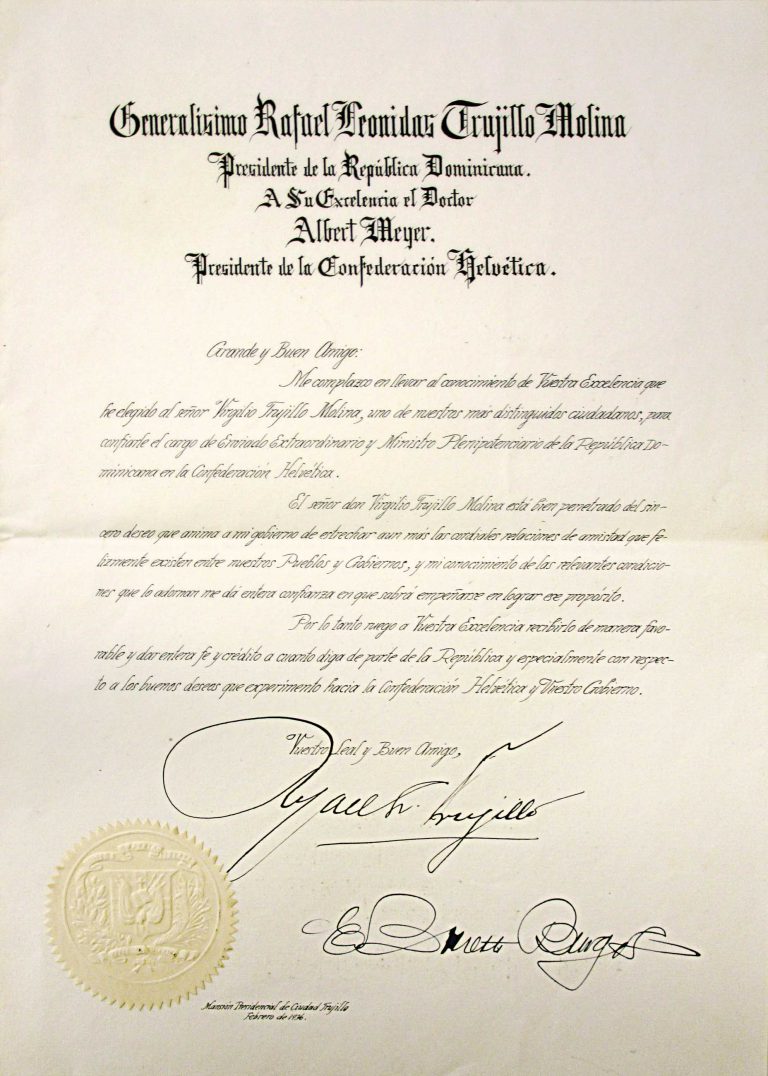
Certificate naming Virgilio Trujillo Ambassador to Switzerland
Schweizerisches Bundesarchiv, Bern, E2001D#10001552#998
Certificate naming Virgilio Trujillo Ambassador to Switzerland
Schweizerisches Bundesarchiv, Bern, E2001D#10001552#998
![Memorandum by the Swiss Foreign Ministry in the “Trujillo Molina dossier” of July 15, 1936 “People on the Quai d’Orsay … have scarcely any detailed personal information about the new ambassador, but seem not to consider such information necessary given the fact that Monsieur [Virgilio] Trujillo Molina is the brother of the president of the Republic.” Schweizerisches Bundesarchiv, Bern, E2001D#10001552#998](https://evian1938.de/files/m11_dominikanische-republik_trujillo_b-768x1080.jpg)
Memorandum by the Swiss Foreign Ministry in the “Trujillo Molina dossier” of July 15, 1936
“People on the Quai d’Orsay … have scarcely any detailed personal information about the new ambassador, but seem not to consider such information necessary given the fact that Monsieur [Virgilio] Trujillo Molina is the brother of the president of the Republic.”
Schweizerisches Bundesarchiv, Bern, E2001D#10001552#998
Memorandum by the Swiss Foreign Ministry in the “Trujillo Molina dossier” of July 15, 1936
“People on the Quai d’Orsay … have scarcely any detailed personal information about the new ambassador, but seem not to consider such information necessary given the fact that Monsieur [Virgilio] Trujillo Molina is the brother of the president of the Republic.”
Schweizerisches Bundesarchiv, Bern, E2001D#10001552#998
Conference Contributions
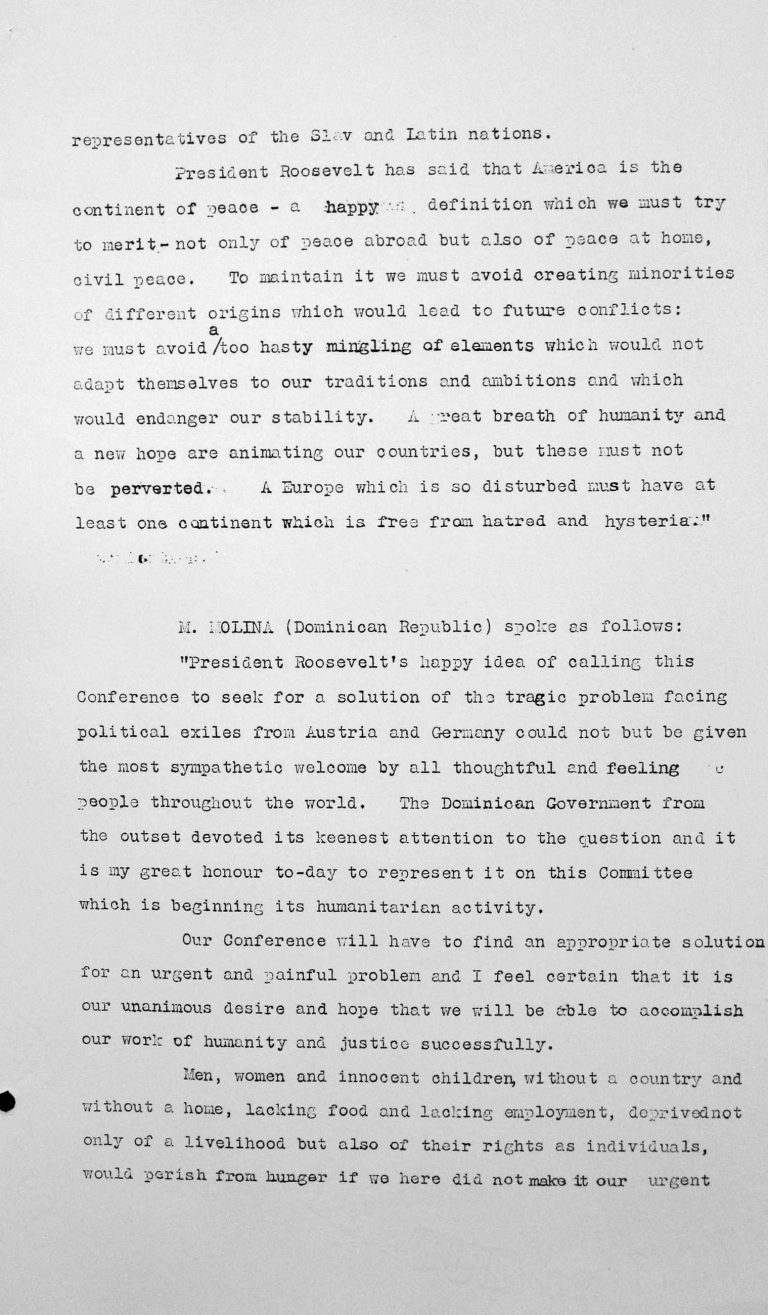
Speech by Virgilio Trujillo Molina (Domincan Republic) in the public session on July 9, 1938, 11am, p. 1/2
Franklin D. Roosevelt Library, Hyde Park, NY
Speech by Virgilio Trujillo Molina (Domincan Republic) in the public session on July 9, 1938, 11am, p. 1/2
Franklin D. Roosevelt Library, Hyde Park, NY
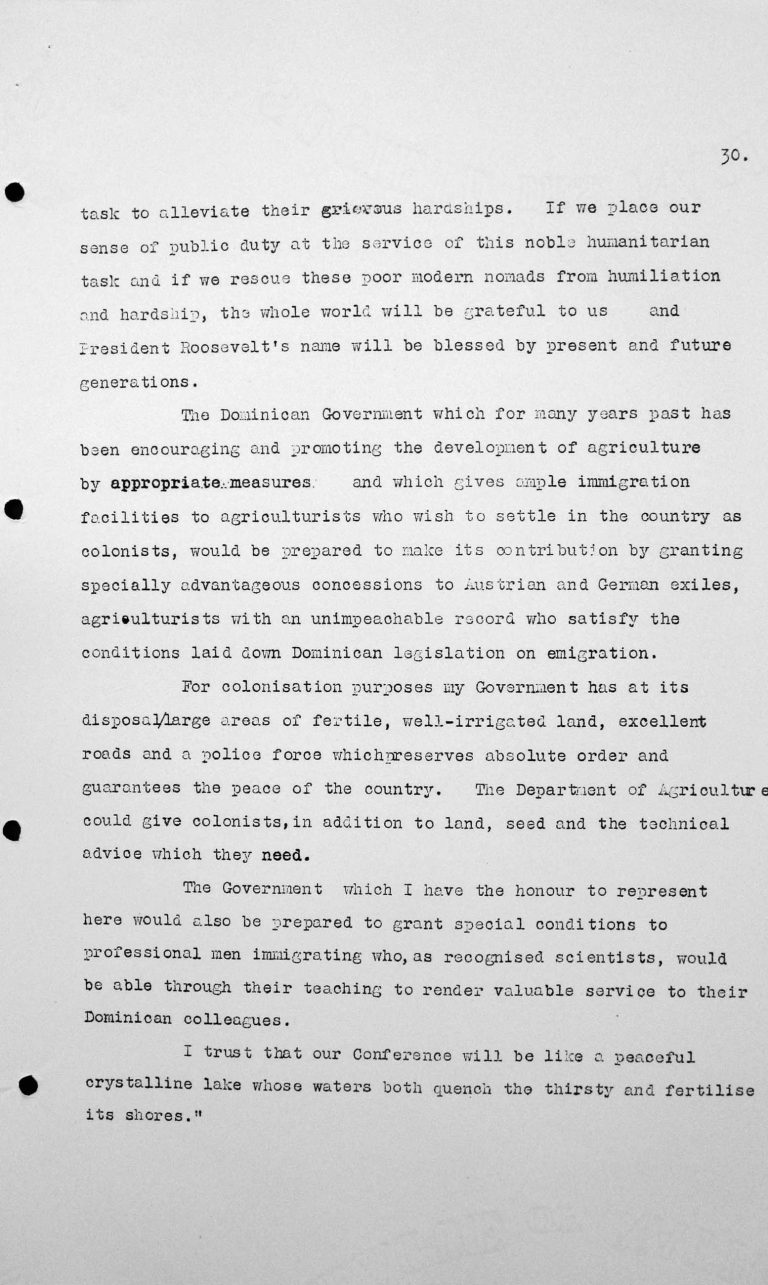
Speech by Virgilio Trujillo Molina (Domincan Republic) in the public session on July 9, 1938, 11am, p. 2/2
Franklin D. Roosevelt Library, Hyde Park, NY
Speech by Virgilio Trujillo Molina (Domincan Republic) in the public session on July 9, 1938, 11am, p. 2/2
Franklin D. Roosevelt Library, Hyde Park, NY
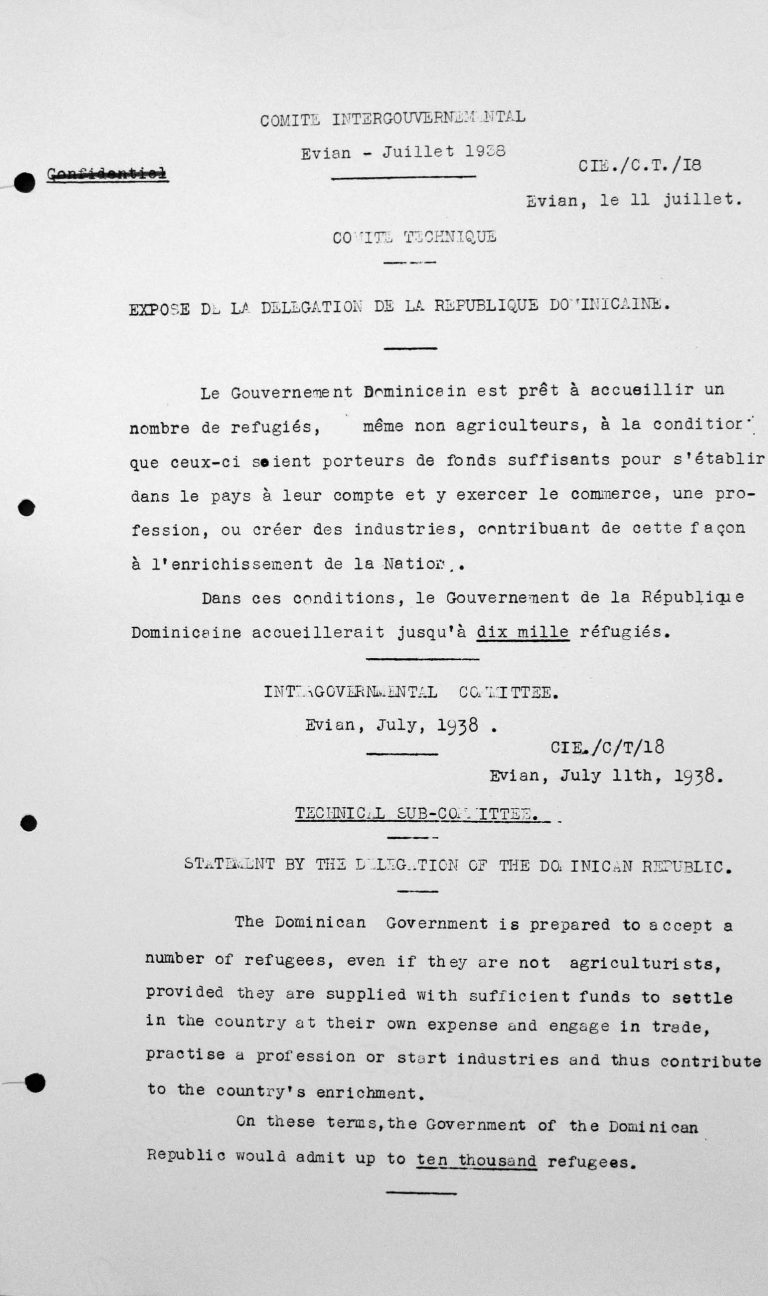
Statement by the delegation of the Dominican Republic for the Technical Sub-Committee, July 11, 1938
Franklin D. Roosevelt Library, Hyde Park, NY
Statement by the delegation of the Dominican Republic for the Technical Sub-Committee, July 11, 1938
Franklin D. Roosevelt Library, Hyde Park, NY
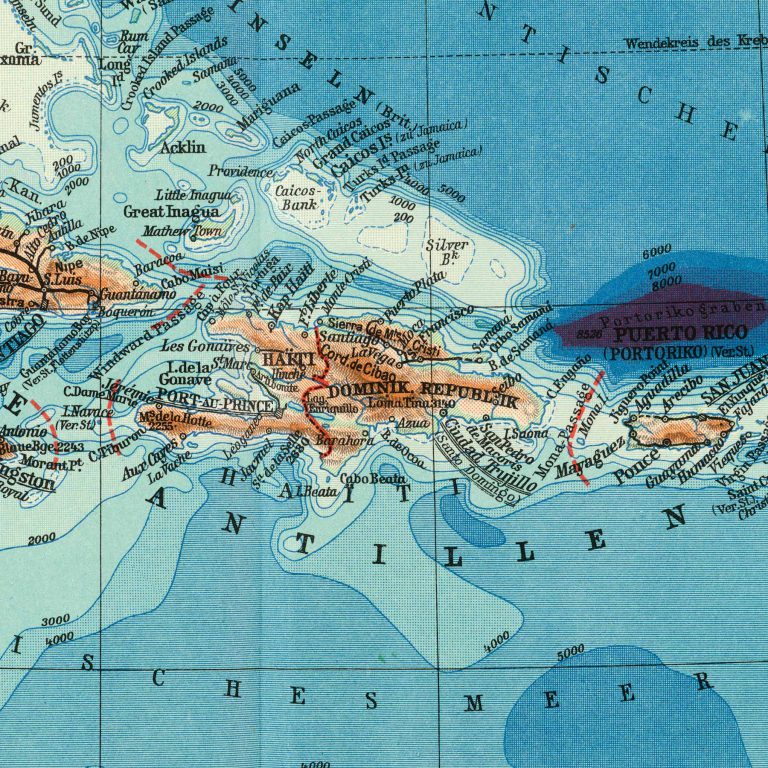




![Memorandum by the Swiss Foreign Ministry in the “Trujillo Molina dossier” of July 15, 1936 “People on the Quai d’Orsay … have scarcely any detailed personal information about the new ambassador, but seem not to consider such information necessary given the fact that Monsieur [Virgilio] Trujillo Molina is the brother of the president of the Republic.” Schweizerisches Bundesarchiv, Bern, E2001D#10001552#998](https://evian1938.de/files/m11_dominikanische-republik_trujillo_b.jpg)


